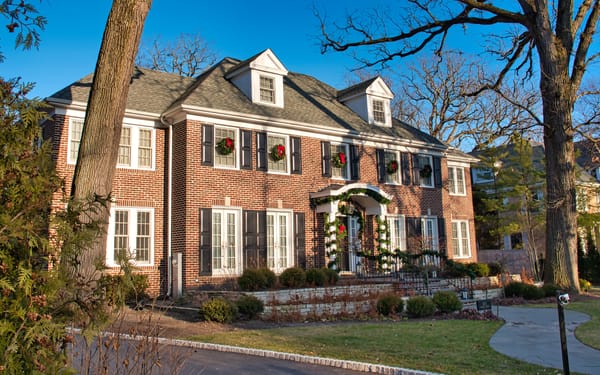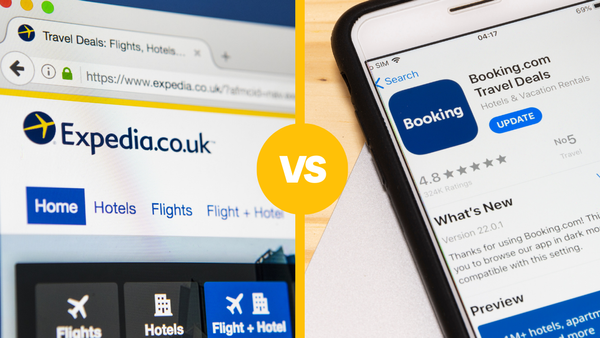Nashville Airbnb Laws: A Comprehensive Guide for Hosts and Property Managers

Cities like Chattanooga and Gatlinburg have been identified as two of the best locations in the United States to invest in short-term rental properties. What about other popular cities in Tennessee like Nashville?
According to Airbnb data, in 2022, hosts in the city collectively generated almost $260 million. On average, your typical Airbnb host earned more than $24,000 per year. What makes this figure even more impressive is that most hosts (over 70%) have just one Airbnb property listed.
It is Nashville’s hospitality and culture that make it such a popular destination among travelers from all over the globe. It has made one of Airbnb’s listicles as one of the most hospitable cities in the US. A few years ago it was also listed as one of the trending beer destinations.
That said, it has much more to offer than just beer. Along with world-class cities like London, Paris, and Copenhagen, Airbnb has also listed it as one of the top cities for creative experiences and a trending international destination for Canadians specifically.
Hosting, though, can’t be approached as a purely creative experience. Sure, you can express your creativity when it comes to furnishing your short-term rental, but when it comes to local regulations there’s little freedom.
From business tax to noise restrictions to residential zoning districts, there are many factors to keep in mind before property owners can list their short-term vacation rentals. To help you stay on the right side of local regulations and avoid a run in with the fire marshal, here are the main considerations.

Do You Need a Permit?
First things first, if you want to rent out a property on a short-term basis in Nashville and Davidson County, you’ll need a permit. Permits can be obtained from the Metro Codes Department prior to welcoming your first guest.
This permit will be valid for a year. You’ll need to ensure that you renew your permit every year before its expiration date. The good news is that if your property hasn’t received any documented complaints in that year, you’ll have a 30-day grace period, on condition that you can prove that there was a reasonable explanation for missing the deadline.
If you operate your short-term rental without a permit, you could be fined. The court will impose a $50 fine. However, each day that you operate without a permit will be regarded as a separate offense. So, it can add up.
To make matters worse, if the zoning administrator discovers that you’ve been running your business without the necessary paperwork, you could wait up to a year (in some cases even longer) to become eligible to apply for a permit. The long and the short of it — first get your permit.
In any case, you’ll need to ensure that your permit license number is displayed prominently on the vacation rental websites where you decide to list. So, there’s no getting around this rule.
Types of Permits
In Nashville and Davidson County, there are two types of short-term rental property permits. These are: owner-occupied and non-owner occupied.
According to the Metro Government of Nashville, an owner-occupied residential unit refers to a property that has a maximum of four bedrooms that’s advertised on an online marketplace like Airbnb for transient occupancy. As the title of the permit suggests, the property owner must also reside in the house or in another unit on the same lot.
It’s key that you’ll need to keep the zoning laws in mind before purchasing a property. How you’re allowed to operate the property will be determined by the city’s zoning ordinance. For example, new non-owner occupied permits are often required for investor-owned properties and are only allowed in certain areas.
Applying for a Permit
A property owner has 90 days to complete the application process for a STR permit. If the process can’t be completed in that time frame, the application will expire.
To ensure that the application process continues speedily, here’s the information that you’ll need to provide:
- The property owner’s name, address, telephone number, and email address.
- The address, telephone number, and email address of the person responsible for safety issues and maintenance. This person (or business) must be located within 25 miles of the property.
- Proof of insurance. Insurance must include protection against fire, hazard and liability. In the case of liability insurance, it should be for at least 1 million dollars per event.
- Proof that the owners of each adjacent property have been informed in writing about the intent to turn the property into a short-term rental.
- A statement indicating that the applicant won’t be breaking any homeowners association agreements or co op rules by running a short-term rental property.
- Proof that all taxes due have been paid.
- If you’re applying for an owner-occupied permit, you’ll also need to provide two documents that prove you’ll be occupying the property. You can, for example, submit a letter from your employer, driver’s license, or bank statement.
Safety Regulations
Your property will also need to meet the state and local building and fire safety codes. These include installing approved smoke alarms in all the sleeping areas. Every room that is in the path of the sleeping area will also need to be fitted with one.
As for maximum occupancy, the number of guests may not be more than double the number of sleeping rooms plus four. This means that if your residential dwelling has three bedrooms, there may not be more than 10 guests at your property at any given time.
You’ll also need to double-check that your name and telephone number are posted in the unit in a place where it’s easy to find. What’s more, you’ll need to be available 24/7 in case of an issue. If this doesn’t fit in with your schedule, you’ll need to appoint another party responsible, like a property management company, in which case you’ll list their contact details.
Other Rules and Regulations for Listing in Nashville
Aside from these main laws and regulations, Nashville imposes several other rules that you’ll need to keep in mind. These include:
- Recreational vehicles (RVs), trailers or buses may not be visible on the property.
- Hosts may not prepare or serve their guests food.
- The main guest (principal renter) must be at least 21 years old.
- If the guests will be staying for shorter than 24 hours, you may not receive any money for this booking. In effect, this means that one-night reservations are illegal.
- As for the maximum length of the booking, no guest may be allowed to stay for longer than 30 consecutive days.

Who’s Responsible for Tax?
As host, you’ll be responsible for collecting and remitting tax. This will include a hotel occupancy privilege tax and a sales tax.
It’s best to work with a tax professional who’s familiar with the industry and its tax rules. He/she will be able to help you to complete your business tax return.
In addition to adding a tax professional to your team, it’s also a good idea to invest in tools to help you with the paperwork. For example, with a tool like iGMS, you can streamline the process of receiving payouts and creating invoices by connecting your Stripe account to iGMS. It can also help you to optimize your pricing regularly through integrations with tools like PriceLabs and DPGO which will help you to generate more profit. Then, to make it easier to keep track of your financial performance, you can use it to create essential reports on your business results within minutes.
Aside from these basic bookkeeping features, it can also assist with other routine hosting tasks like:
- Managing multiple accounts and listings on the top vacation rental platforms from a single interface
- Streamlining your guest communication with PROtrack, a unique add-on functionality for the guest support team productivity tracking
- Synchronizing reservations across multiple platforms to eliminate the risk of getting a double-booking
- Using the unified inbox to organize your messages into a single feed and ensure prompt replies
- Automating the process of guest review send-outs
- Managing direct bookings using a direct booking management toolkit.







